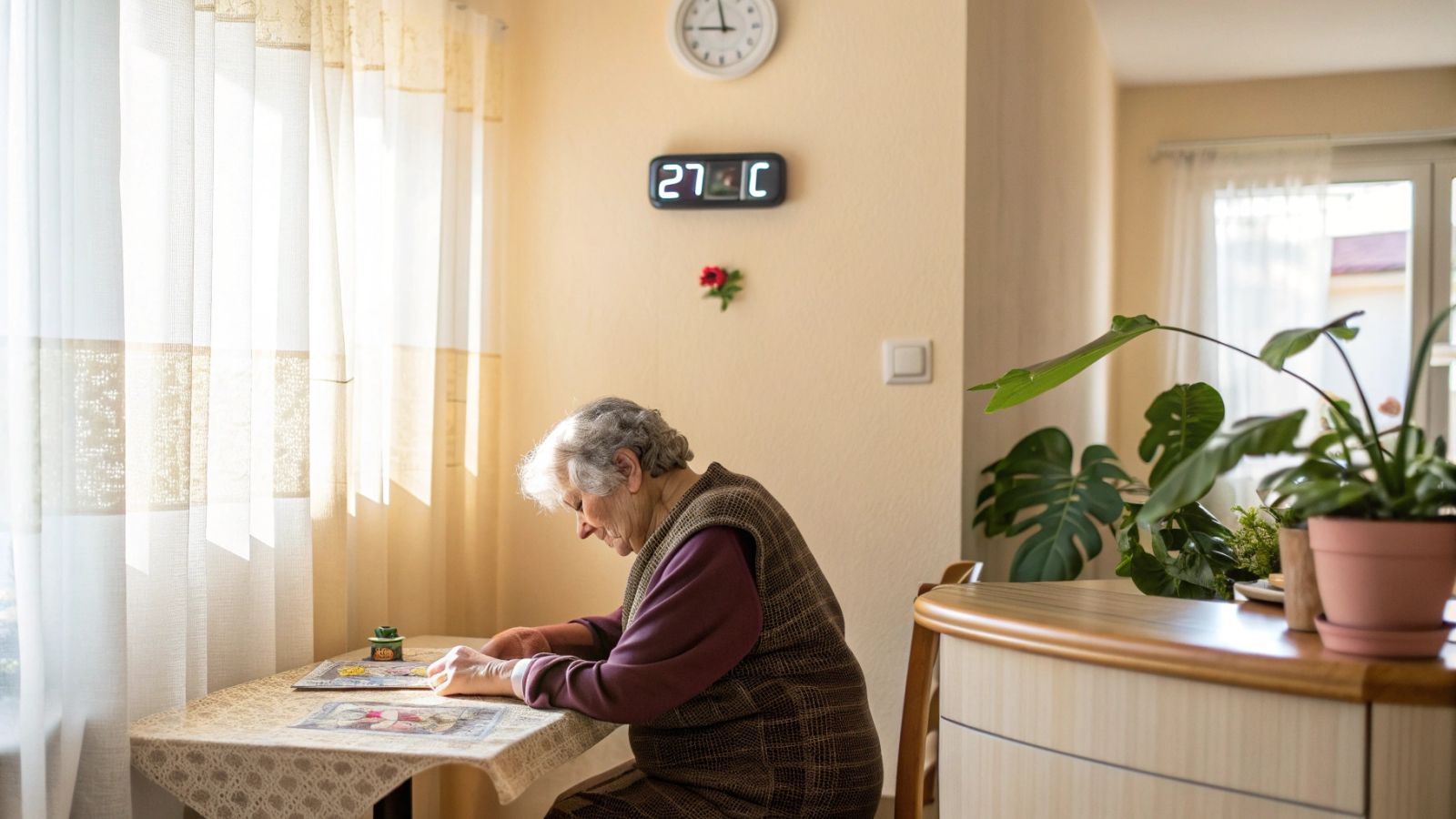The temperature of your home impacts your cognitive health 🌡️
Published by Cédric,
Article author: Cédric DEPOND
Source: Journal of Gerontology
Other Languages: FR, DE, ES, PT
Article author: Cédric DEPOND
Source: Journal of Gerontology
Other Languages: FR, DE, ES, PT
Follow us on Google News (click on ☆)

Researchers from the Hinda and Arthur Marcus Institute for Aging Research, affiliated with Harvard Medical School, conducted a study on 47 seniors over the course of a year. Their goal: to understand how variations in home temperature affect their ability to concentrate. The results, published in the Journal of Gerontology, show that temperature fluctuations can impact attention difficulties far more than previously thought.
Temperature and attention: a close link
Participants reported fewer concentration problems when their homes were maintained between 20 and 24 °C (68-75 °F). Outside this range, their attention problems doubled with every 4 °C (7 °F) variation, in both directions. These observations highlight the importance of a stable thermal environment for preserving brain function.
Low-income populations are particularly vulnerable, as they often have fewer resources to regulate the temperature of their homes. This socio-economic inequality could exacerbate risks to their cognitive health, especially in the context of climate change.
A public health issue
Researchers are calling for targeted public policies to improve the energy efficiency of homes and ensure equitable access to thermal regulation systems. Technological solutions, such as smart homes, could also play a key role in this effort.
The study highlights the urgency of adapting housing to the needs of seniors, especially in the face of rising global temperatures. Protecting their cognitive well-being requires better management of indoor environments, an issue that extends far beyond the individual level.
To go further: What is climate resilience?
Climate resilience refers to the ability of an individual, community, or system to adapt to the effects of climate change. It involves measures to reduce risks and maintain optimal functioning in the face of environmental disruptions.
For older adults, climate resilience involves adapted housing capable of maintaining a stable temperature despite external variations. This includes thermal insulation, access to efficient heating or cooling systems, and smart technologies to regulate the indoor environment.
Public policies play a key role in strengthening this resilience. They must promote the energy efficiency of buildings and ensure equitable access to necessary resources, especially for vulnerable populations such as low-income seniors.
Finally, climate resilience is not limited to infrastructure. It also encompasses educational and social initiatives to raise awareness and prepare individuals for the challenges related to global warming, particularly those affecting cognitive and physical health.
What is cognitive health?
Cognitive health refers to the brain's ability to function optimally, particularly in terms of memory, attention, reasoning, and problem-solving. It is essential for maintaining independence and quality of life, especially among older adults.
Several factors influence cognitive health, including environment, lifestyle, and general health conditions. Cognitive disorders can manifest as difficulties in concentrating, remembering, or making decisions. These problems are often exacerbated by unfavorable environmental conditions, such as extreme temperatures or a lack of thermal comfort.
Protecting cognitive health requires a holistic approach, including adapted living environments, a balanced diet, regular physical activity, and stimulating social interactions. These elements help preserve brain function and delay age-related cognitive decline.